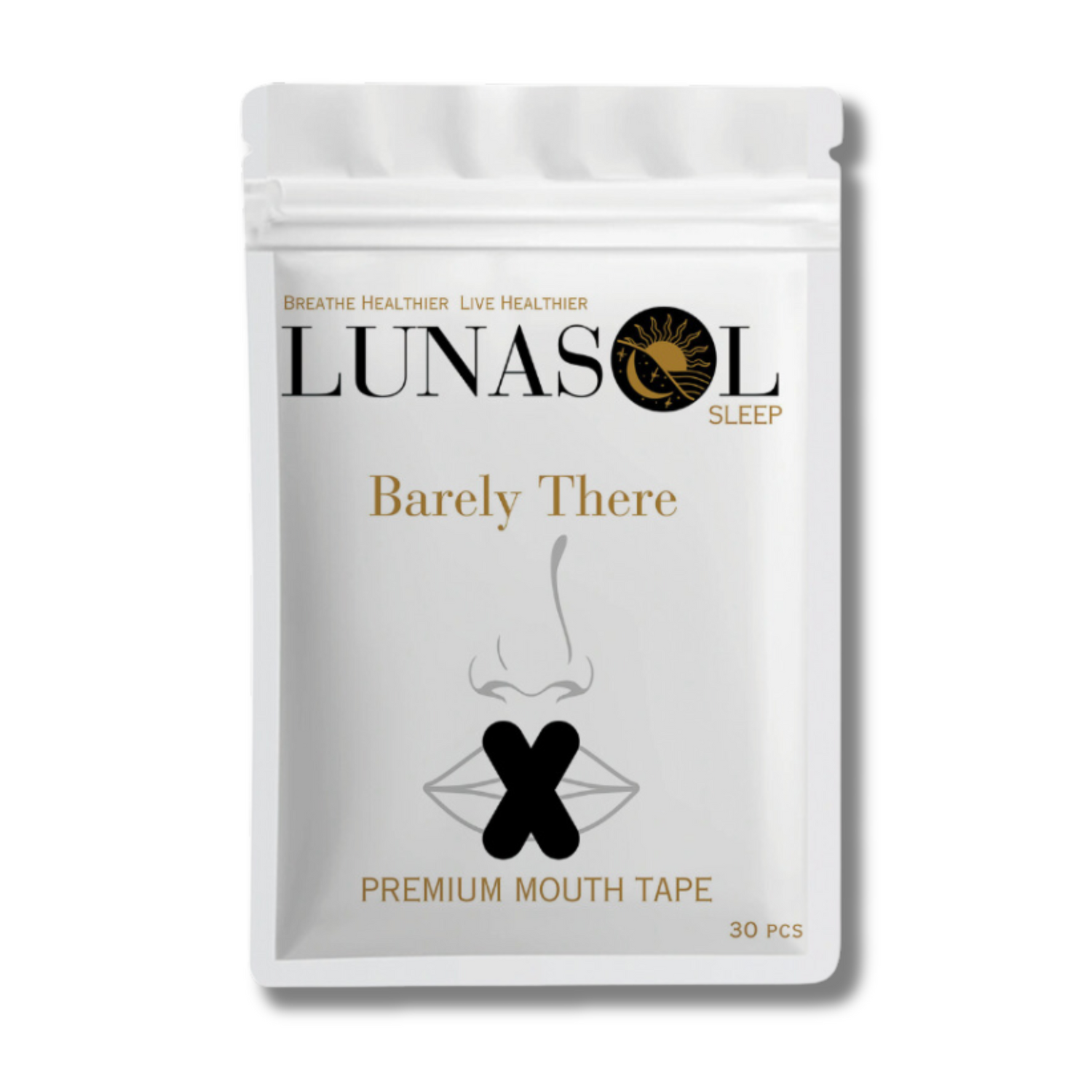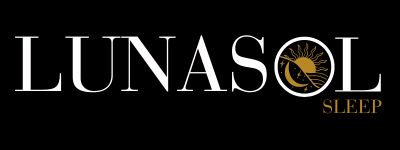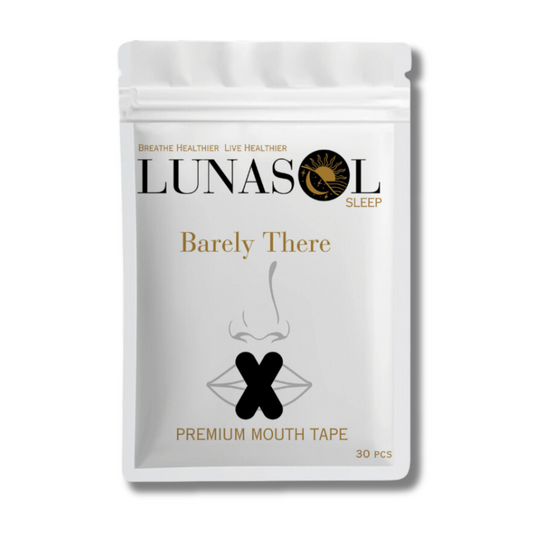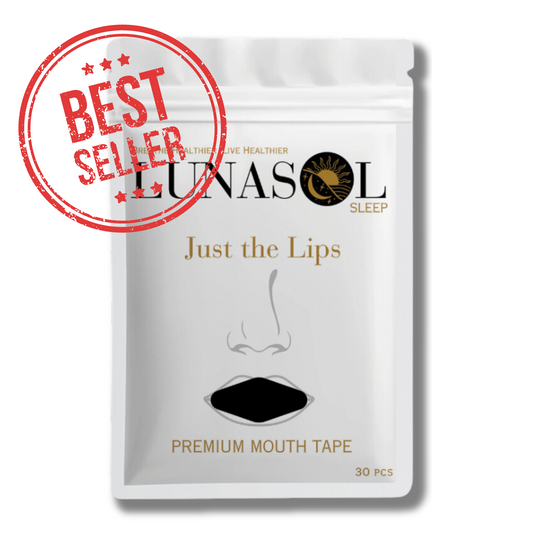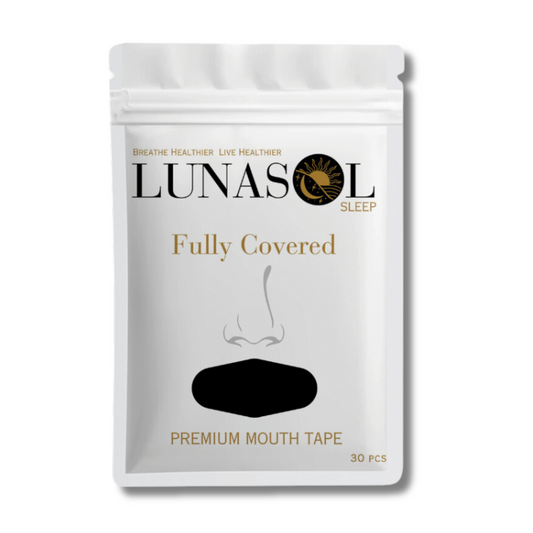Mouth Breathing: How It's Hurting You!
Negative Effects of Mouth Breathing
Cardiovascular Health
The relationship between mouth breathing and cardiovascular health is both significant and complex, impacting various aspects of heart health through indirect mechanisms related to oxygen exchange, blood pressure regulation, and stress response. The subtleties of how mouth breathing can adversely affect the cardiovascular system underscore the need for awareness and intervention strategies.
Increased Blood Pressure
Mouth breathing can lead to elevated blood pressure through several pathways, primarily by affecting the body's ability to produce and utilize nitric oxide, a vasodilator generated in the nasal passages during nasal breathing:
- Reduced Nitric Oxide Production: Nitric oxide plays a crucial role in relaxing and dilating blood vessels, thereby reducing blood pressure. Mouth breathing bypasses the nasal passage, significantly reducing the amount of nitric oxide that enters the bloodstream.
- Sympathetic Nervous System Activation: Mouth breathing can trigger the sympathetic nervous system, leading to vasoconstriction and an increase in heart rate and blood pressure.
- Impaired Oxygen-Carbon Dioxide Exchange: The inefficient exchange of oxygen and carbon dioxide associated with mouth breathing can lead to reduced oxygen levels and elevated carbon dioxide levels in the blood, further contributing to increased blood pressure.
Reduced Oxygen Absorption
The way we breathe directly impacts the efficiency of oxygen absorption into the bloodstream. Mouth breathing can compromise this process, leading to potential cardiovascular stress:
- Bohr Effect: The Bohr effect describes how blood pH levels influence the binding and release of oxygen to hemoglobin. Mouth breathing can lead to an imbalance in carbon dioxide levels, which affects the blood's pH level and reduces the hemoglobin's ability to release oxygen into the tissues.
- Lowered Blood Oxygen Levels: Consistently lower oxygen levels can strain the heart, as it needs to work harder to deliver adequate oxygen to the body's tissues and organs.
Elevated Heart Rate
Mouth breathing can influence heart rate through its effects on the body's stress response and oxygenation levels:
- Stress Response: Chronic mouth breathing can keep the body in a prolonged state of stress, which is associated with an increased heart rate. Over time, this can strain the heart and contribute to cardiovascular issues.
- Inefficient Breathing: The shallow, less efficient breathing pattern of mouth breathing can lead to a higher heart rate as the body attempts to compensate for the reduced oxygenation efficiency.
Risk of Cardiovascular Diseases
The cumulative effect of the factors associated with mouth breathing can increase the risk for developing cardiovascular diseases:
- Atherosclerosis: Reduced nitric oxide levels and increased blood pressure can contribute to the development of atherosclerosis, where arteries narrow and harden due to the buildup of plaque, increasing the risk of heart attack and stroke.
- Heart Failure: The added strain on the heart from increased blood pressure and a higher resting heart rate over time can lead to heart failure, a condition where the heart cannot pump blood effectively.
- Arrhythmias: The stress and oxygen imbalance associated with mouth breathing can also lead to arrhythmias, or irregular heartbeats, which can be a precursor to more serious cardiovascular conditions.
Mental Health
The implications of mouth breathing on mental health are profound and complex, spanning cognitive functions, emotional well-being, and stress management. The brain’s oxygen demand is high, making the quality of breathing directly influential on mental health outcomes. Here’s a deeper exploration into how mouth breathing can impact mental health and strategies to mitigate these effects.
Increased Stress and Anxiety
Mouth breathing can significantly affect the body's stress response, leading to heightened levels of anxiety and stress:
- Elevated Cortisol Levels: The body's response to the decreased oxygenation from mouth breathing can lead to an increase in cortisol, the stress hormone. Chronically elevated cortisol levels are associated with heightened anxiety, stress, and an increased risk of depression.
- Sympathetic Nervous System Activation: Mouth breathing activates the sympathetic nervous system, responsible for the 'fight or flight' response. This can lead to a constant state of stress or anxiety, making it difficult for the body to relax and recover.
Impaired Concentration and Cognitive Function
The brain's reliance on a steady supply of oxygen means that any reduction can impair cognitive functions:
- Reduced Cognitive Performance: Inadequate oxygenation can lead to difficulties with concentration, memory, and other cognitive tasks. Over time, this can affect learning, work performance, and daily activities.
- Brain Fog: Mouth breathing can lead to a state often referred to as 'brain fog,' where individuals experience a lack of mental clarity, difficulty focusing, and forgetfulness.
Mood Fluctuations
The balance of oxygen and carbon dioxide has a direct impact on mood regulation, with mouth breathing potentially leading to mood disturbances:
- Neurotransmitter Imbalance: Proper breathing helps regulate neurotransmitters, such as serotonin and dopamine, which play key roles in mood regulation. Mouth breathing can disrupt this balance, contributing to mood swings and an increased risk of mood disorders.
- Emotional Resilience: The stress and anxiety associated with mouth breathing can reduce emotional resilience, making individuals more susceptible to emotional disturbances and less able to cope with stressors.
Sleep Disruption and Mental Health
The interplay between sleep and mental health is well-documented, with mouth breathing contributing to sleep disturbances that exacerbate mental health issues:
- Reduced Sleep Quality: Mouth breathing can lead to sleep disturbances, including snoring and sleep apnea, which impair the quality of sleep. Poor sleep quality is closely linked to an increased risk of mental health disorders, including anxiety and depression.
- Impact on REM Sleep: REM sleep is crucial for emotional and psychological well-being. Mouth breathing can disrupt REM sleep, leading to poorer emotional regulation and increased susceptibility to mental health problems.
Sleep Health
The impact of mouth breathing on sleep health is significant and multifaceted, influencing everything from sleep quality to the risk of sleep-related disorders. Nasal breathing plays a critical role in maintaining optimal sleep patterns, whereas mouth breathing can disrupt these patterns, leading to various health issues. Here’s a deeper look into how mouth breathing affects sleep health and potential strategies for improvement.
Snoring and Sleep Apnea
Mouth breathing is closely linked to snoring and obstructive sleep apnea (OSA), conditions that significantly impact sleep quality and overall health:
- Snoring: When air flows past relaxed tissues in the throat, the tissues vibrate during breathing, resulting in snoring. Mouth breathing exacerbates this by allowing the jaw and tongue to fall back, narrowing the airway and increasing tissue vibration.
- Obstructive Sleep Apnea: Mouth breathing can contribute to or worsen OSA, a condition where the airway is periodically blocked during sleep, leading to repeated waking episodes. This blockage is more likely when the mouth is open, as the lower jaw and tongue move backward, obstructing the airway.
Reduced Sleep Quality
Mouth breathing affects the stages and quality of sleep, with several consequences for health and well-being:
- Lighter, Less Restorative Sleep: Mouth breathing can prevent the body from reaching deeper, more restorative stages of sleep, such as slow-wave sleep and REM sleep. This results in lighter, fragmented sleep that is less refreshing.
- Increased Nighttime Awakenings: The discomfort and dryness from mouth breathing can lead to frequent awakenings, making it hard to maintain a consistent sleep cycle.
- Decreased Oxygen Saturation: Mouth breathing can lead to decreased oxygen levels in the blood, affecting sleep quality and contributing to feelings of fatigue and drowsiness upon waking.
Daytime Fatigue
The disruption of sleep architecture and reduction in sleep quality associated with mouth breathing have direct implications for daytime functioning:
- Impaired Cognitive Function: Poor sleep can affect memory, concentration, decision-making, and learning abilities.
- Mood Alterations: Sleep disruption can lead to irritability, anxiety, and an increased risk of depression.
- Physical Health Effects: Chronic fatigue can weaken the immune system, increase the risk of cardiovascular diseases, and exacerbate weight gain by affecting metabolism and appetite.
Compromised Immune System
The quality of sleep has a profound impact on immune function, with mouth breathing indirectly compromising the body's ability to fight off infections:
- Reduced Cytokine Production: Sleep is crucial for the production of cytokines, proteins that signal the immune system to do its job. Disrupted sleep from mouth breathing can lead to decreased cytokine production, weakening immune responses.
- Increased Susceptibility to Infections: The lack of restorative sleep impairs the body's natural defenses, making mouth breathers more susceptible to colds, flu, and other infections.
Nitric Oxide Production
Nitric oxide (NO) is a crucial molecule for cardiovascular health, immune function, and overall well-being, and its production is significantly reduced in mouth breathers.
- Antimicrobial Properties: Nitric oxide has potent antimicrobial effects, helping to combat airborne pathogens and reduce the risk of respiratory infections.
- Vasodilation: NO is a powerful vasodilator, improving blood flow and oxygen delivery to tissues, which is essential for cardiovascular health and wound healing.
- Boosted Oxygen Delivery: By facilitating vasodilation, nitric oxide enhances oxygen delivery to organs and tissues, supporting optimal function.
- Regulated Blood Pressure: Its role in vasodilation also helps to maintain blood pressure within a healthy range, preventing hypertension.
Impact of Mouth Breathing on Nitric Oxide Production
Mouth breathing significantly reduces the body's ability to produce and utilize nitric oxide effectively. The nasal passages are a primary site for nitric oxide production, and bypassing nasal breathing means that less NO is taken into the lungs and bloodstream, diminishing its widespread benefits.
- Reduced Antimicrobial Defense: The lower levels of nitric oxide available to the respiratory system can increase susceptibility to infections.
- Compromised Vasodilation: With less NO available, the body's ability to regulate blood pressure and ensure adequate blood flow is impaired.
- Diminished Exercise Performance: Athletes and individuals who primarily breathe through their mouths may find their performance and recovery capabilities are not optimal due to the reduced availability of nitric oxide.
Respiratory Health
Mouth breathing significantly impacts respiratory health by bypassing the natural filtration, warming, and humidification processes of the nasal passages. This can lead to a cascade of respiratory issues, exacerbating existing conditions and increasing the susceptibility to new infections and diseases. By understanding the specific ways in which mouth breathing affects respiratory health, individuals can take proactive steps to mitigate these effects and promote healthier breathing patterns.
Increased Risk of Respiratory Infections
The nose serves as a first line of defense against airborne pathogens. Mouth breathing circumvents this defense, leading to an increased risk of respiratory infections:
- Bypassing Nasal Filtration: The nasal passages filter out large particles, including dust and microbes. Mouth breathing allows these pathogens direct access to the lower respiratory tract.
- Compromised Mucosal Immunity: The nasal cavity produces immune-boosting substances that help neutralize pathogens. Mouth breathing reduces exposure to these substances, weakening the body's local immune response in the respiratory tract.
- Dryness in the Throat and Lungs: The lack of humidification of inhaled air can dry out the mucous membranes, reducing their ability to trap and remove pathogens, thereby increasing the risk of infections like bronchitis and pneumonia.
Dryness of the Airways
The constant flow of unfiltered, dry air directly into the lungs can have several detrimental effects on the respiratory system:
- Irritation and Inflammation: Dry air can irritate the lining of the respiratory tract, leading to inflammation and increased sensitivity, which may exacerbate conditions like asthma and chronic bronchitis.
- Decreased Mucociliary Function: The mucociliary escalator, a crucial defense mechanism against respiratory infections, relies on moist mucous membranes to function properly. Mouth breathing compromises this mechanism, making it harder for the body to clear mucus and trapped pathogens.
- Increased Vulnerability to Allergens: The dry, irritated airways are more susceptible to allergens, which can trigger allergic reactions and asthma attacks in sensitive individuals.
Asthma and Allergy Symptoms
Mouth breathing not only increases the risk of developing respiratory issues but can also worsen existing conditions such as asthma and allergies:
- Exacerbation of Asthma Symptoms: For asthma sufferers, mouth breathing can lead to more frequent and severe asthma attacks by introducing cold, dry air directly into the lungs, which triggers airway constriction.
- Worsening Allergy Symptoms: Allergens that are normally filtered by the nasal passages can directly enter the lungs, exacerbating allergic reactions and symptoms such as sneezing, coughing, and itchy throat.
Compromised Lung Function
The long-term effects of mouth breathing on lung health can be profound, with potential implications for lung development and function:
- Reduced Lung Capacity: Chronic mouth breathing can lead to changes in respiratory mechanics, potentially resulting in a reduced lung capacity and less efficient gas exchange.
- Altered Breathing Patterns: Habitual mouth breathing can lead to shallow, upper chest breathing instead of deep, diaphragmatic breathing. This less efficient breathing pattern can reduce oxygen intake and carbon dioxide expulsion, impacting overall respiratory efficiency.
- Potential for Lung Damage: Over time, the constant intake of unfiltered, cold, and dry air can contribute to the risk of chronic respiratory conditions and potentially lead to permanent damage to lung tissue.
Sexual Health
The connection between mouth breathing and sexual health might not be immediately apparent, but it stems from the broader implications of mouth breathing on overall health, sleep quality, stress levels, and hormonal balance. These factors play a critical role in sexual desire, performance, and reproductive health. By exploring the pathways through which mouth breathing can impact sexual health, individuals can gain insights into managing these effects for improved well-being and intimacy.
Lowered Libido
Mouth breathing affects libido through indirect mechanisms related to sleep disruption and increased stress:
- Impact of Poor Sleep on Testosterone: Quality sleep is crucial for the production of sex hormones, including testosterone in men. Mouth breathing, by disrupting sleep and reducing its quality, can lead to lower testosterone levels, directly impacting libido.
- Stress and Sexual Desire: Chronic mouth breathing can elevate stress levels, primarily through its impact on sleep and the body's stress response. Elevated cortisol levels can suppress sexual desire as the body prioritizes resources towards managing stress over reproductive functions.
Erectile Dysfunction
The ability to maintain an erection is closely linked to vascular health, which can be compromised by mouth breathing through several pathways:
- Reduced Oxygen Saturation: Mouth breathing can lead to lower oxygen levels in the blood, which can impair endothelial function, a key factor in erectile function. The endothelium plays a crucial role in the vascular changes required for an erection.
- Nitric Oxide Production: As previously mentioned, nasal breathing enhances the production of nitric oxide, a molecule vital for vasodilation and blood flow. Mouth breathing, by reducing nitric oxide levels, can contribute to erectile dysfunction.
- Sleep Apnea and Erectile Function: Mouth breathing is a significant contributor to sleep apnea, a condition associated with a higher risk of erectile dysfunction. The intermittent oxygen desaturation and sleep fragmentation seen in sleep apnea can impair sexual function.
Hormonal Imbalance
The intricate balance of hormones in the body is sensitive to stress, sleep quality, and overall health, all of which can be impacted by mouth breathing:
- Impact on Stress Hormones: Chronic stress, exacerbated by poor sleep due to mouth breathing, can lead to imbalances in cortisol and other hormones, affecting reproductive hormones and sexual health.
- Sleep and Hormonal Regulation: The disruption of sleep affects the circadian rhythm, which in turn influences the release of hormones critical for reproductive health, including estrogen and progesterone in women, further complicating the relationship between mouth breathing, hormonal balance, and sexual health.
Reduced Fertility
While more indirect, the impact of mouth breathing on fertility is an extension of its effects on sexual desire, erectile function, hormonal balance, and overall health:
- Stress and Fertility: Elevated stress levels can negatively impact fertility in both men and women by affecting hormone levels and menstrual cycles.
- Sleep Quality and Reproductive Health: The quality of sleep influences reproductive health. Poor sleep, often a consequence of mouth breathing, can affect ovulation and sperm quality, potentially reducing fertility.
Dental Health
The impact of mouth breathing on dental health is profound and multifaceted, influencing not only the health of teeth and gums but also the development of the oral cavity and facial structure. Chronic mouth breathing can lead to a range of dental health issues, from cosmetic concerns to serious oral health conditions. Understanding these effects is crucial for preventing long-term dental problems and ensuring optimal oral health.
Gum Disease and Cavities
The relationship between mouth breathing and increased risk of gum disease and cavities is well-documented. The shift from nasal to mouth breathing alters the oral environment in several detrimental ways:
- Dry Mouth: Mouth breathing leads to reduced saliva production. Saliva plays a critical role in neutralizing acids produced by bacteria, washing away food particles, and remineralizing tooth enamel. A dry mouth environment facilitates the growth of harmful bacteria, increasing the risk for cavities and gum disease.
- Bacterial Overgrowth: The absence of saliva's protective effects allows for an overgrowth of bacteria that can lead to plaque buildup, tooth decay, and gum inflammation, contributing to the development of periodontal disease.
- Acidic Environment: The increased presence of bacteria and decreased saliva contribute to a more acidic oral environment, accelerating enamel erosion and cavities formation.
Tooth Decay
Mouth breathing directly contributes to the acceleration of tooth decay through several mechanisms, emphasizing the need for diligent oral hygiene and preventive care:
- Increased Exposure to Carbohydrates: Mouth breathing can lead to a preference for softer, carbohydrate-rich foods, which can stick to teeth and feed harmful oral bacteria.
- Enamel Erosion: The acidic environment promoted by mouth breathing can weaken and erode tooth enamel, the hard outer layer of the teeth, making them more susceptible to decay.
- Tooth Sensitivity: As enamel erodes, teeth become more sensitive to temperature changes and certain foods, leading to discomfort and the potential for avoiding healthy, nutrient-rich options.
Malocclusion and Facial Deformities
The long-term effects of mouth breathing extend beyond the teeth and gums, affecting the development of the jaw and facial structure:
- Improper Jaw Development: Chronic mouth breathing can interfere with the normal growth and development of the jaw. This can lead to malocclusion, where the upper and lower teeth do not align properly, causing bite issues, difficulty chewing, and uneven wear on teeth.
- Altered Facial Growth: Prolonged mouth breathing can influence facial development, leading to a longer, narrower face, less defined cheekbones, and a drooping mouth. These changes can have significant aesthetic and functional implications, affecting speech, chewing, and overall facial symmetry.
- Gummy Smile: A "gummy smile," where excessive gum tissue is visible above the top teeth when smiling, can be more common in mouth breathers due to the altered oral posture and jaw development.
Physical Health
The impact of mouth breathing on physical health extends across various bodily systems, influencing everything from physical performance to immune function. This breathing habit can have a profound effect on an individual’s ability to engage in physical activity, their susceptibility to illness, and even their posture and musculoskeletal health. Here’s a more detailed exploration of how mouth breathing can adversely affect physical health:
Reduced Stamina and Endurance
The efficiency of oxygen exchange is crucial for physical performance, particularly during sustained physical activity. Mouth breathing can significantly hamper this process, leading to several issues:
- Inefficient Oxygen Exchange: Mouth breathing leads to a faster but less effective exchange of air, which can reduce oxygen saturation in the blood. For athletes and physically active individuals, this means reduced endurance and stamina, as muscles receive less oxygen to support aerobic activities.
- Elevated Carbon Dioxide Loss: Excessive loss of carbon dioxide through mouth breathing can lead to a disturbance in the body's pH balance, affecting muscle function and leading to quicker fatigue.
- Poorer Athletic Performance: The combination of reduced oxygen delivery and inefficient carbon dioxide removal can significantly impair athletic performance, limiting an individual’s ability to train effectively or compete at their highest level.
Compromised Immune Function
The role of the nasal passage in filtering and humidifying air is not just about comfort; it's a first line of defense against pathogens. Mouth breathing bypasses these natural defenses, leading to increased vulnerability:
- Increased Susceptibility to Infections: With mouth breathing, air bypasses the nasal mucosa, which filters out a significant portion of airborne pathogens. This can increase the incidence of upper respiratory infections, colds, and flu.
- Impaired Immune Response: Chronic mouth breathing can lead to chronic inflammation, weakening the immune system over time and making the body less effective at fighting off infections.
- Dryness and Inflammation of the Throat: The lack of humidification can dry out and irritate the throat, providing an easier entry point for pathogens and leading to increased rates of sore throats and tonsillitis.
Muscle Tension and Postural Issues
The way we breathe affects our posture and musculoskeletal health. Mouth breathing can lead to imbalances that have wide-ranging implications:
- Increased Neck and Shoulder Tension: Mouth breathing often leads to forward head posture to facilitate easier breathing. This posture increases strain on the neck, shoulders, and upper back muscles, leading to tension, pain, and even chronic musculoskeletal issues.
- Altered Spinal Curvatures: Prolonged forward head posture can affect spinal alignment, potentially leading to changes in the natural curvatures of the spine. Over time, this can contribute to back pain and decreased flexibility.
- Impaired Core Stability: Proper breathing engages and stabilizes the core muscles. Mouth breathing can weaken these muscles, affecting overall body stability, balance, and posture.
Delayed Recovery from Physical Exertion
The body’s recovery process after physical exertion relies heavily on efficient oxygen use and removal of waste products. Mouth breathing can hinder this recovery process:
- Reduced Oxygenation for Muscle Repair: The less efficient oxygen exchange associated with mouth breathing means that muscles receive less oxygen for repair and recovery after exercise.
- Increased Stress Response: The stress response induced by mouth breathing can slow down the body’s recovery mechanisms, prolonging muscle soreness and fatigue after physical activity.
- Poor Sleep Quality: As mouth breathing negatively affects sleep quality, the body has less opportunity to repair and regenerate during sleep, crucial for recovery from physical exertion.
Beauty Health
The implications of mouth breathing extend far beyond the immediate discomfort it might cause, seeping into the realm of beauty and aesthetics in ways that are often irreversible without intervention. The long-term effects of mouth breathing on facial structure, skin health, and overall appearance can significantly impact one’s self-esteem and perception by others. Here, we delve deeper into how mouth breathing can alter one's beauty health, potentially leading to premature aging and distinct facial deformities.
Premature Aging
Mouth breathing accelerates the aging process through several mechanisms, primarily by affecting the skin and facial muscles.
- Skin Dryness and Irritation: Constant mouth breathing leads to dryness, not just in the mouth and throat, but also on the facial skin surrounding the mouth. This chronic dryness can cause the skin to lose its elasticity and suppleness, leading to the early appearance of wrinkles and fine lines.
- Decreased Skin Oxygenation: Adequate oxygenation is crucial for skin health, promoting collagen production and maintaining a youthful glow. Mouth breathing compromises the body’s oxygen levels, affecting skin regeneration and repair processes, and contributing to a dull, aged complexion.
- Facial Muscle Tension: The altered breathing pattern increases tension in certain facial muscles while underutilizing others. Over time, this imbalance can lead to changes in facial expression and resting face structure, often making individuals appear older or more fatigued than they are.
Facial Deformities
The impact of mouth breathing on the development of facial structures, particularly in children, can have lasting effects on one's appearance.
- Long, Narrow Face and High Palate: Chronic mouth breathing affects jaw development, leading to a longer, narrower face. The palate can also become higher and narrower, affecting the dental arch and potentially leading to crowded teeth or malocclusion.
- Less Defined Cheekbones and Jawline: Nasal breathing helps to properly align and develop facial bones. Mouth breathing can result in less defined cheekbones and a weaker jawline due to the lack of proper muscle engagement and bone development.
- Gummy Smile and Malocclusion: The habit of mouth breathing can alter the position of the tongue and its pressure on the teeth and palate, leading to dental and orthodontic issues like a gummy smile, where excessive gum tissue is visible, and malocclusion, where the teeth don’t align properly.
Impact on Self-Esteem and Social Perception
The aesthetic implications of mouth breathing can profoundly affect one’s self-image and how they are perceived by others. The changes in facial structure and skin health can lead to decreased self-confidence and may affect social interactions.
- Self-Esteem Issues: Individuals with visible signs of mouth breathing may become self-conscious about their appearance, particularly if they have facial deformities or skin issues resulting from the habit. This can impact their social life, professional interactions, and overall mental health.
- Perception by Others: Human psychology is such that facial symmetry and signs of health are often unconsciously equated with beauty. The deviations from these norms caused by mouth breathing can affect how individuals are perceived in social and professional contexts.
